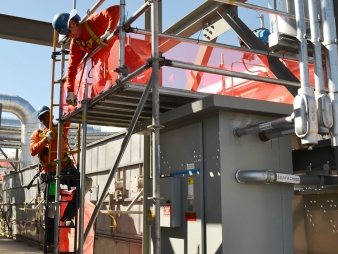Not always! The BWC has a statutory right of subrogation which may soon be given some sharper teeth.
When your employee is injured while working and the injury is the fault of someone else, you may be able to seek subrogation. There is new proposed legislation that will provide immediate relief to some employers for claims that arise from motor vehicle accidents caused by a third party.
Subrogation is the process by which the BWC collects medical and compensation costs paid on behalf of injured workers when a third party causes the workers’ compensation injury. In the majority of circumstances, for subrogation to occur, the injured worker must collect a judgment or settlement from the at-fault party. Ohio law gives a right of subrogation to the BWC, self-insuring employers and certain employers who contract for the direct payment of medical services pursuant to Section 4121.44(L) of the Ohio Revised Code.
The amount collected as subrogation is normally negotiated at the time of settlement of the claim. This can often be two years or more after the injury. Full reimbursement almost never occurs. The BWC credits the amount it collects to the employer’s risk account at the time of the recovery. This may result in a reduction of the employer’s premium. However, sometimes it is too little too late and the employer is saddled with a big premium increase or perhaps the loss of group discount.
In early December 2015, the Ohio House of Representatives voted unanimously to pass House Bill 207 which contains a significant change to Ohio’s workers compensation subrogation statute. If approved by the Senate, the revision will create an exception where a state funded employer will not be impacted by claims that arise from a motor vehicle accident caused by a third party.
Under the new proposal, if a motor vehicle accident is caused by a third party who is clearly at fault, the claim will be charged to the Surplus Fund, rather than the employer’s experience. Given the often serious nature of motor vehicle accidents, this exception would allow employers to avoid the serious implications for claims completely outside of their control and the often detrimental impact on their ratings.
In order to qualify for this abatement, the employer bears the burden of demonstrating: 1) that they pay into the State Fund; 2) the claim arose from a motor vehicle accident involving a third party; 3) who was issued a citation for violation of any law or ordinance regulating the operation of a motor vehicle arising from the accident on which the claim was based; and 4) that either some form of insurance or uninsured coverage covers the third party.
After the claim is filed, the employer must file a request with the BWC Administrator proving the four requirements. Payment of the claim costs is then made from the Surplus Fund which keeps the costs from being assessed to the employer’s policy. The proposal incentivizes the BWC to pursue its subrogation rights in claims where a third party is at fault. The proposal would create much needed relief for smaller businesses which are often significantly impacted by a single claim outside of the workplace, over which it had no control.
For more information on workers compensation issues, please contact one of our CC&J attorneys in the Labor and Employment Section.




